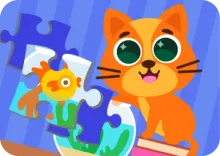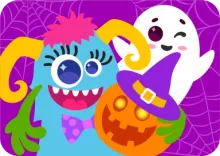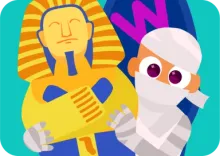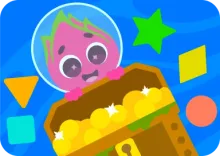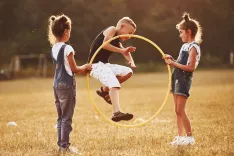Mystery Games for Kids: Every Mystery is a Development Tool
Mystery games turn kids into detectives with clues, puzzles, and simple missions. These activities build observation, memory, and teamwork while keeping play exciting at home, in class, or at a party.
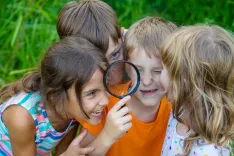
Mystery games for kids to build problem-solving skills
Ghosts, castles with numerous secret passages, codes in old letters, books with disappearing inscriptions... Probably every child in childhood was attracted to all these and many other attributes of mysterious and enigmatic stories. Some children like detective puzzles, others like the general atmosphere, and some even enjoy being scared (naturally, pretend scary!). But one thing is certain – children love mysteries.
That's why they need mystery games for kids so much – these are more than just entertainment; they're exciting adventures that teach children logic, deduction, and problem-solving skills. Such tasks stimulate curiosity, teach little ones attention to detail and critical thinking, turning the learning process into an engaging investigation. In this article, we'll examine why mystery games are so beneficial, how to select games by age, and even how to create them yourself.
The Benefits of Mystery Games for a Child's Brain Development
Mystery games for kids improve logic, attention to detail, and teach teamwork. They're multifaceted, affecting different aspects of child development:
- Development of logical thinking and deduction. Games teach children to collect clues, analyze them, and make logical conclusions. This is a basic skill that's simply necessary for further in-depth study of science and mathematics (and even programming).
- Improvement of concentration and attention to detail. To find solutions or clues in detective games for kids, you need to be very attentive. Children learn to notice details that at first glance seem insignificant but ultimately lead to the solution.
- Development of problem-solving skills. Each game presents the child with a new task to solve. This teaches little ones to find ways out of difficult situations and not give up even when something doesn't work out.
- Stimulating creativity and imagination. Children create their own scenarios and hypotheses, which develops their imagination and creative thinking.
- Strengthening social skills. Many spy games for kids require collaborative work. Little ones learn to listen to each other, exchange ideas, and cooperate to achieve a common goal.

Help your child
grow with Keiki
We’ll help you turn everyday screen time
into real learning progress.
Why Do Children Love Mysteries So Much (and How Can This Be Used for Development)?
Children are naturally curious, and mysteries satisfy their need for exploration and control. Here's how you can use this for their development:
- Innate curiosity. Children want to explore the world and understand how it works. Riddles and mysteries give them the opportunity to satisfy this curiosity in a safe playful form.
- Sense of control. When a child finds a solution, they feel smart and capable. This strengthens their self-confidence.
- Development of imagination. Mysteries allow children to create their own stories and scenarios. They imagine themselves as detectives or secret agents, which helps them develop imagination.
Deductive reasoning games for kids help children understand cause-and-effect relationships in real life. They learn that every action has consequences and that you need to be attentive to details.
Mystery and Puzzle Games by Age
Choosing mystery games should depend on the child's age and interests. Properly selected games will be not only engaging but also beneficial.
Simple Mystery Games for Toddlers (1-2 years)
Games for the youngest should be maximally simple and based on basic concepts.
What's Under the Cloth?
Hide a toy under a cloth and ask: "What is it?" The child should guess what's hidden there. Choose toys and objects whose silhouettes will help the little one understand what's there.
Where Did It Hide?
An excellent mystery games for toddlers option. Hide a favorite toy and ask the child to find it. This is a fun and simple activity that develops attentiveness.
What's in the Box?
Put several objects in a box. Let the child touch them and guess what they are. You can give accessible hints like yes or no, close or far from the solution.
Guess the Sound
Hide toys that make sounds (car, rattle, block). The child should guess what it is.
Find the Color
Ask the child to find something red, blue, or yellow in the room. This way they'll also find it easier to learn all color names.
Mystery Games for Preschoolers (3-4 years)
For this age, games can be slightly more complex. These are already full-fledged cognitive development games focused on developing logic and deduction.
Hot and Cold
One player hides an object while others must find it, guided by hot or cold clues.
What's Missing?
Put several objects on the table. Ask the child to close their eyes, hide one of them, and ask them to guess what's missing.
I Spy
This is a classic game where you need to guess an object by its color. It develops attentiveness and observation skills.
Following the Trail
One of the detective games for kindergarten variants. Draw animal or human tracks on the ground. Children should follow them to find treasure.
Where's My Object?
One player thinks of an object while others must guess it by asking questions: "Is it big?", "Is it red?"
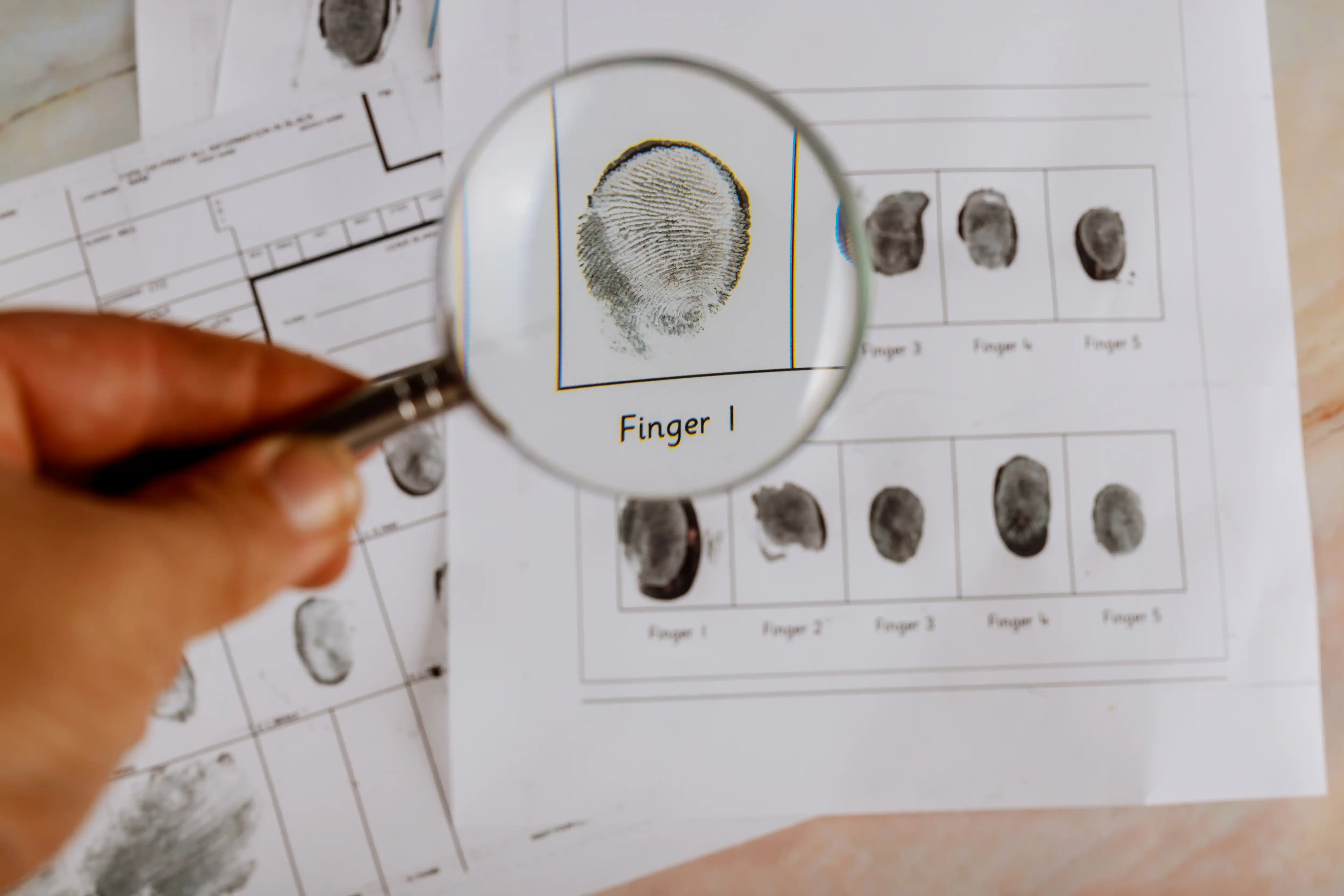
Classic Mystery Games for Older Children (5-6 years)
For older children, more complex entertainments are suitable that require logical thinking. This is already full-fledged school preparation, many of which can be attributed to critical thinking games with complex tasks.
Detective Story
Create a simple story where someone stole a toy. Children must find clues and guess who the culprit is.
Code Breakers
Write a simple message using a cipher (for example, replace each letter with a number). Children must decode it.
Detective
One child is a detective while the rest are suspects. The detective must ask questions and find the criminal.
Secret Agent
Create a scenario where children must complete a mission following clues. One of those fun mystery games where, if you follow rules and scenario, you can get lots of fun and engaging conclusions.
Tracker
This is an outdoor game where you need to find specific objects or signs that will lead to the solution.
Build real skills through fun, educational games for your child
Try KeikiDIY Mystery Games – Entertainment with Minimal Equipment
You don't have to buy expensive games. You can create them yourself using simple objects available at home.
Mystery in a Box
Put several objects in a box. Write riddles and clues that will help the child guess what's inside.
Mysterious Letter
Write a letter from a fictional character containing a riddle and puzzle. You can also practice different methods of writing and decoding disappearing ink with children. Letters with milk, lemon juice, and other variants that disappear from the sheet when dry but appear when held over a candle flame.
Ghost Hunt
If you're looking for indoor games for kids, your home can temporarily take on the role of a mysterious haunted castle. Dress a toy in a white napkin or sheet, hide it in a dark corner or some not-too-obvious place. Then write several clues or draw a ghost search map. Each of these clues, one after another, will lead children to the ghost.
Riddle Maze
Draw a maze on paper and write a riddle at each turn. To proceed further, you need to solve it.
Related Games in Keiki App
Digital Mystery Games: How to Boost Logic with Online Apps?
Online mystery games for kids can be an excellent tool for developing logic and critical thinking. Most such tasks have interactivity and engaging plots where entire stories guide through paths of riddles and investigations. One app where children await such puzzles and logic tasks is Keiki. There are many different games here where everyone can find something for themselves, especially since they have different difficulty levels, meaning they're also suitable for different ages. Such educational games for kids can be highlighted:
- Object Search. There's no more popular and beloved game for mystery fans than object search. In the moment, you can truly feel like a detective, showing maximum attention and concentration. Such brain development games for children are useful at any age.
- Creative Corner. Not all mysterious atmosphere means only logical puzzles, sometimes it accompanies the creative process itself. This game is literally infused with Halloween spirit, here's everything children love so much: an abandoned mansion that can be decorated with ghosts and other attributes, potion brewing, creating your own monster.
- Hide and Seek. Another variation on the object search theme. This is also a good memory development game since the child needs to remember search sequences, different details, and locations.
- Fun Puzzles. There are many fun ways to boost logic skills in children, and the simplest yet most effective is just using puzzles. In Keiki's case, these are also interactive puzzles with many variations and animation.
Using apps, you can play anytime and anywhere, making them very convenient. Many digital mystery games, for example in Keiki, are available without ads and harmful content, making them safe for children.

